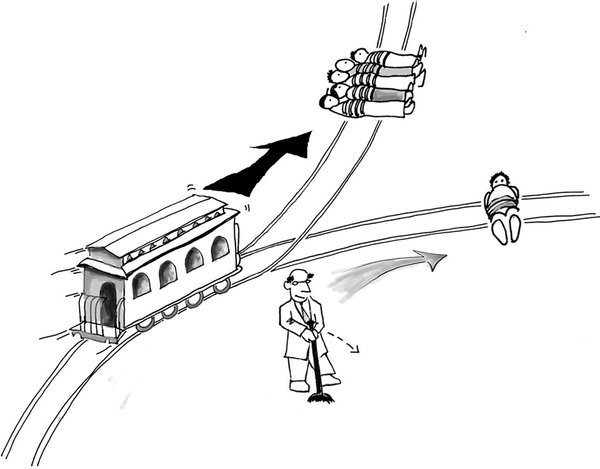In every society, there are fundamental principles that guide how things are done. These principles point us to expected ethical obligations.
Theories that attempt to explain what we are obligated to do are known as ethical theories.
Ethics help to clarify expected moral values with respect to right and wrong. Utilitarianism is an ethical theory
What Exactly Is Utilitarianism?
Utilitarianism targets the most good and the greatest benefit to the people involved. The aim is to maximize happiness.
To a utilitarian, the most ethical choice is the one that produces the best outcome for all interested parties.
This ethical theory depends on a person’s ability to predict the result of their action. Unfortunately, these predictions are not always accurate.
Unexpected results can make a utilitarian’s choices seem unethical even though the choices are meant to benefit all concerned parties.
Utilitarianism can be divided into two types:
A. Act Utilitarianism
Here, a person takes an action that produces the most good regardless of the laws of the land or personal benefit or injury.
Act utilitarianism is mainly based on “the end justifies the means.”
B. Rule Utilitarianism
In this case, a person will consider the law and fairness before an action is taken.
S/he will want to achieve maximum good through the most just means.
In terms of making laws, rule utilitarianism says that the right law is the one that produces the best results.
Examples of Utilitarianism in Real-life
Before we check out these examples, you should note that a utilitarian considers all people to be of equal value to society.
1. Redistribution of Wealth

It’s no secret that the gap between the rich and the poor is widening as time passes.
A poor man will value $1000 dollars. On the other hand, a billionaire may not consider the same amount a big deal.
So, we can say that a poor man will derive more happiness from a certain amount of money compared to a billionaire.
In many economies, the population of the poor is greater than the rich. Therefore, wealth redistribution can result in more happiness for a greater number of people.
2. Mandatory Vaccination

In most countries, the vaccination of babies is mandatory.
Having everyone vaccinated produces a good outcome because it reduces or eradicates communicable diseases.
Though there are parents and caregivers who may prefer not to vaccinate their infants, utilitarian ethics support the idea of mandatory vaccination because that will produce the most good in terms of reducing diseases.
3. The Trolley Problem

Picture this. You are on a trolley speeding toward five people who are tied onto the tracks. These people will die if you hit them.
Ahead of you, there is a turn to a different track where one person is tied. If you turn to the alternate track the person will die.
You have to decide between killing one person or killing five. Well, utilitarianism says that the best decision is to kill one person and spare five.
4. Mandatory Curfews during Epidemics

To curb the spread of viruses during a pandemic, governments can implement laws that restrict movement and reduce person-to-person contact. This results in protecting the health of the citizens.
To maximize the benefits of social distancing, governments must ensure that the basic needs of their citizens are met.
Otherwise, overall happiness will reduce and that will affect the utilitarian target of producing the greatest good for the people.
5. When a Government Approves Drugs with Side Effects

We are familiar with effective drugs which have side effects.
The release of such drugs can be considered an act of utilitarianism if the people helped are more than the people who are bothered by the drugs’ side effects.
TRENDING: 10 Tone Policing Examples
6. Visiting a Sick Friend

Technically, you don’t need to visit a sick friend at the hospital. You can choose to stay at home or go about your business.
But you can take the trouble and make the visit because it will make your friend and you feel better.
7. Criminal Justice

In the utilitarian philosophy, criminals should be punished to discourage future criminal activity.
When determining the acceptable punishment for a crime, utilitarianism will consider several ideas including:
- The humanity of a criminal
- The severity of punishment
- Rehabilitation of a criminal
- Undoing the harm done by a crime
To produce the best outcome for society, a utilitarian system will seek to balance these ideas with the aim of producing a happier society where crime and punishment are at a minimum.
The aim of punishment is to reduce future crimes. After the punishment, offenders should be empowered to succeed within the boundaries of the law.
Parting Thoughts
There you have it; 7 simple examples of utilitarianism in real life.
When thinking about utilitarianism, remember this: what brings people the most happiness is what is most ethical.
A utilitarian takes the action that is best for the greatest number of people.

